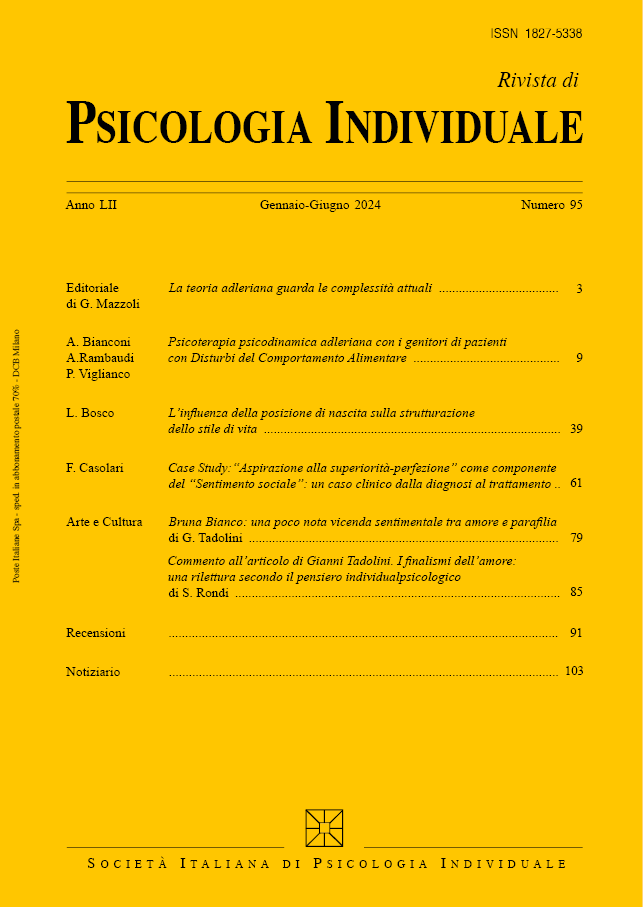Children and television. Initial results of an Adlerian psycho-sociological study
Keywords:
compensation, communication, obsessive phobic contagion, creativity, play, plagiarism of violence, sexual role, feelings of childhood inferiority, stereotypes, intellectual developmentAbstract
The considerations made by examining the answers given by children aged 7 to 11 and their parents to two separate questionnaires [it would be interesting to know the questions and results, which, however, are not presented] are presented. At first, TV is just a means of entertainment, which can replace—but not monopolize—games. As children get older, it also becomes an educational tool, helping to compensate for the natural feelings of inferiority experienced by children and becoming part of the child-parent relationship. TV can influence children's discovery of their sexual role, and its role in influencing violent behavior should not be underestimated. Furthermore, the negative influence that stereotypical situations, characters, and drawings in cartoons have on intellectual development must be emphasized, as they can also cause obsessive phobias. This would require greater creativity on the part of authors, also to train children in more effective forms of communication






